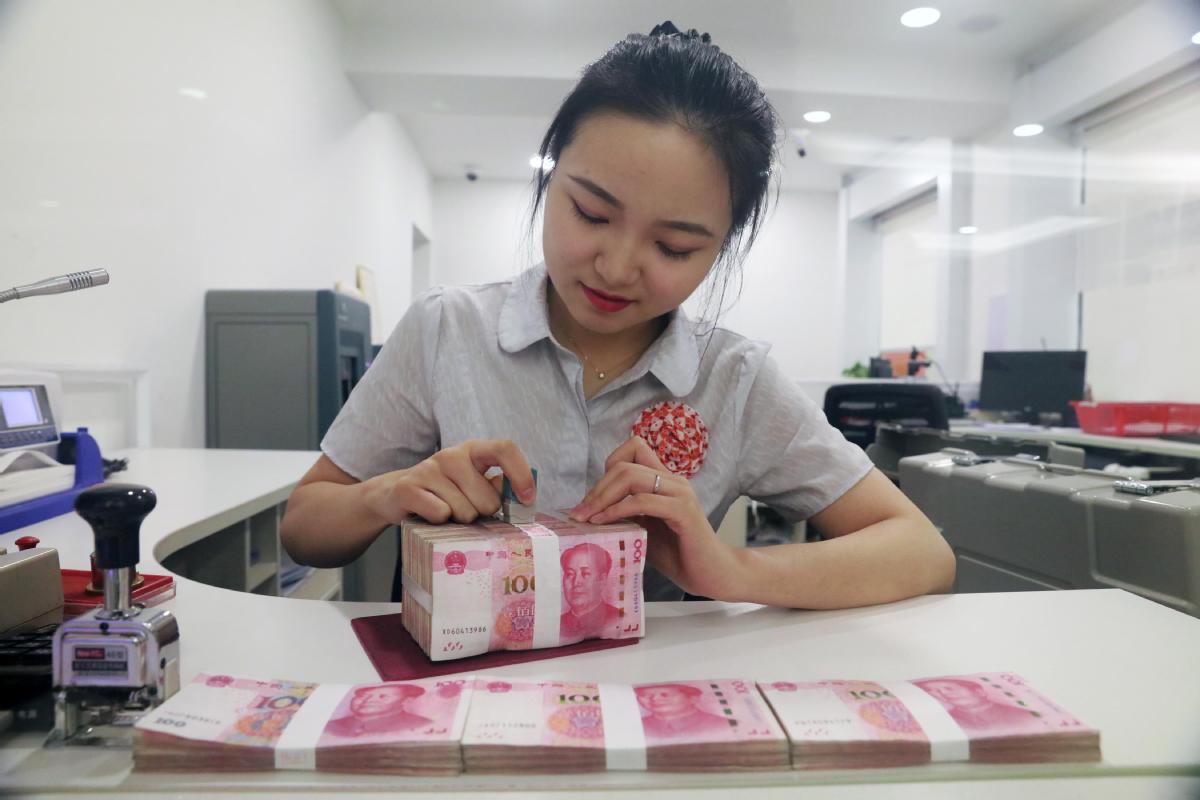July loans top analyst forecasts


Authorities to balance financial risk control, real economy support
Domestic banks extended 1.45 trillion yuan ($210.8 billion) in new yuan loans in July, higher than analysts' expectations, as policymakers made progress in balancing the need to control financial risks and feed money to the real economy, according to the central bank on Monday.
New yuan loans in July increased by 623.7 billion yuan year-on-year, said the People's Bank of China in a statement posted on the official website.
In line with the credit expansion, the growth of broad money supply, or the M2, accelerated to 8.5 percent last month, up from a record-low of 8 percent in June, the official data said.
The central bank also released the increment of total social financing at 1.04 trillion yuan in July, compared with 1.18 trillion yuan in June.
Analysts said the authorities still have room to adopt a more accommodative policy stance in the second half of the year, and additional monetary easing measures could include a relaxation of loan quotas.
"Looser monetary policy would halt the slowdown in credit growth. The drop of credit growth earlier this year was mostly concentrated in the shadow banking sector, the main target of the government's deleveraging campaign," said Wang Shengzu, cohead of Investment Strategy Group Asia, Goldman Sachs Private Wealth Management.
Policymakers are seeking to limit the impact of tighter credit conditions on the real economy. The deleveraging campaign has mostly affected corporate credit, while household credit has continued to rise faster than nominal GDP, Wang said.
Credit growth would most likely accelerate if the government increased infrastructure spending and eased the tightening of financial sector regulation, according to the Goldman Sachs economist.
Lu Ting, chief China economist at Nomura Securities, said that the government might encourage banks to provide more loans in the coming months, especially to invest in key infrastructure construction projects.
He said that moderate monetary and credit easing will most likely be underpinned by more proactive fiscal policy to head off a growth slowdown and maintain financial stability.
According to data from the China Banking and Insurance Regulatory Commission, new infrastructure loans totaled 172.4 billion yuan in July, an increase of 46.9 billion yuan over June. In the first seven months of this year, loans to small and micro enterprises increased 1.6 trillion yuan, growing faster than the growth of overall loans during the same period.
Amid the ongoing trade dispute between China and the United States, and with China striking a balance between growth and stability, ensuring funds flow into companies in need of capital is a task to which the Chinese authorities are paying increasing attention, analysts said.
The People's Bank of China, the central bank, has cut banks' reserve requirement ratio three times this year, with the latest reduction on July 5 freeing up 700 billion yuan in liquidity. It also lent a net 905.5 billion yuan to financial institutions through its medium-term lending facility in June and July, according to central bank data.
Since the start of August, the central bank has begun softening rules to encourage lending. The authorities have been leading financial support to the real economy through a myriad of measures.
A top-level meeting chaired by Vice-Premier Liu He called for more efforts in "unclogging" the monetary transmission mechanism.
According to the banking and insurance regulator, it has been improving incentive mechanisms to increase banks' willingness to serve the real economy, such as asking banks to improve internal incentive mechanisms, identify different causes leading to non-performing loans, implement eresponsibility exemptions, and further encourage small banks to lend.
Regulators have been streamlining the supervision and assessment of small and micro financial institutions to boost incentives to lend. The efforts include strengthening the monitoring and evaluation of loans and loan costs, implementing new regulatory policies such as those covering loan renewals, and increasing tolerance of non-performing loans among small and micro enterprises.
The regulator said it will continue to uphold the underlying principle of pursuing progress while ensuring stability, and will further raise financial institutions' quality and efficiency to serve the real economy.
Reuters contributed to the story.



































